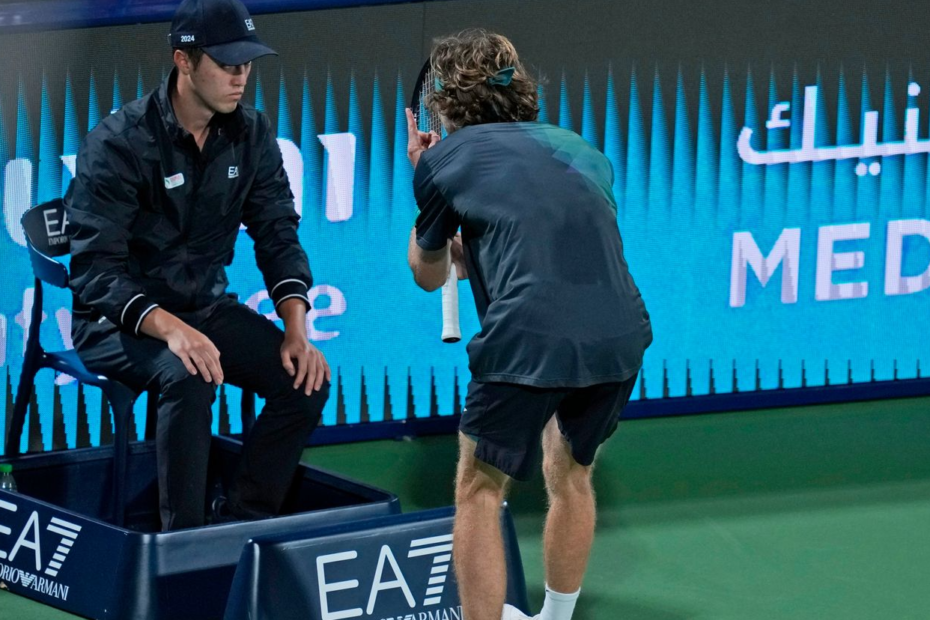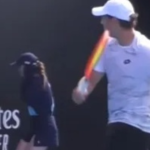In the world of professional tennis, discipline and conduct are just as crucial as talent and skill. A recent incident involving Russian tennis star Andrey Rublev at the Dubai Championships has brought these aspects into sharp focus. Rublev, known for his fiery temperament and formidable play, found himself at the centre of yet another controversy during the tournament’s semi-final match against Alexander Bublik.
The Incident
During a critical juncture in the deciding set, with Bublik taking a 6-5 lead, Rublev lost his composure. The moment of contention arose when Rublev disputed a call, leading to a direct confrontation with the line judge. Eyewitness accounts and official reports state that Rublev pointed to the baseline, approached the line judge, and shouted in his face. This action prompted the intervention of the ATP supervisor Roland Herfel, accompanied by a Russian-speaking individual, to assess the situation.
The assessment led to the determination that Rublev had used profane language towards the line judge, a claim that Rublev contested. He insisted that his conversation with the umpire was in English and did not contain swear words. Despite his protests, chair umpire Miriam Bley made the decision to default Rublev for unsportsmanlike conduct.
Consequences for Rublev
The immediate fallout for Rublev was significant. Being defaulted meant not only losing the match to Bublik—who advanced to the final with a score of 6-7 (4), 7-6 (5), 6-5—but also losing all ranking points and prize money accrued from the tournament. This decision sparked a considerable debate within the tennis community about the fairness and consistency of such penalties.
Community Reaction
Daria Kasatkina, a fellow Russian tennis player, voiced her support for Rublev on social media, questioning the decision to default Rublev without further review of the incident, such as video replay. She highlighted this event as evidence of the need for more transparent and technologically supported decision-making processes in tennis, like VAR (Video Assistant Referee) and electronic line calling across all tournaments.
The Bigger Picture
This incident raises broader questions about the pressure athletes face, the mechanisms in place for dispute resolution, and the consistency of rule enforcement. While Rublev’s actions were deemed unsportsmanlike, the tennis community’s response underscores a desire for fairness and clarity in how rules are applied.
Alexander Bublik’s advancement to the final and subsequent match against Frenchman Ugo Humbert, who defeated top seed Daniil Medvedev, adds another layer of drama to the tournament’s narrative. However, the spotlight remains firmly on Rublev and the implications of his disqualification.
Looking Forward
For Andrey Rublev, the consequences of his actions in Dubai will likely prompt reflection and possibly adjustments in how he handles high-pressure situations. For the tennis world, this incident may serve as a catalyst for discussions on improving the sport’s adjudication processes, ensuring that technology and transparency lead the way in decision-making.
In conclusion, while Rublev’s disqualification at the Dubai Championships marks a challenging moment in his career, it also opens up conversations about the evolution of tennis into a sport where fairness, technology, and the human element coexist more harmoniously.






